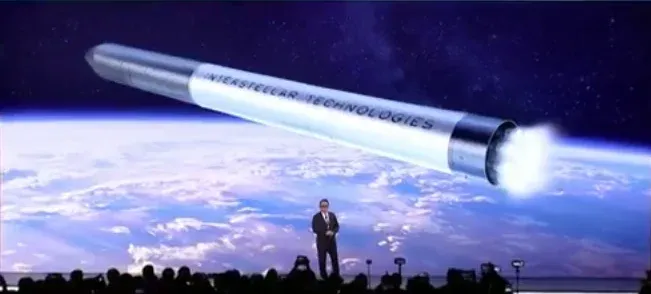Toyota's Bold Leap into Space Exploration A New Era in Mobility
In a groundbreaking announcement at the Consumer Electronics Show (CES) 2025, Toyota Motor Corporation unveiled its ambitious plans to enter the space exploration industry. With a bold vision for mobility extending beyond Earth, Toyota revealed a substantial investment of 7 billion Japanese yen (approximately $44 million) into Interstellar Technologies Inc., a Japanese startup specializing in lightweight, cost-effective rockets. This strategic move positions Toyota as a serious player in the burgeoning space industry, redefining its role in global transportation.
Source: DRM NewsThe Vision Behind Toyota's Investment
During his keynote speech at CES, Toyota Chairman Akio Toyoda emphasized the company’s commitment to innovation, stating, “We are exploring rockets too, because the future of mobility shouldn’t be limited to just Earth or just one car company.” This statement underscores Toyota’s dedication to redefining mobility and embracing space exploration as an integral part of modern transportation.
Strategic Partnership with Interstellar Technologies
Toyota’s investment in Interstellar Technologies goes beyond financial support. This strategic partnership aims to revolutionize rocket production. Founded in 2013, Interstellar Technologies has achieved milestones in suborbital flight with its MOMO rockets. Now, with Toyota’s expertise in scalable manufacturing, the partnership seeks to transition to the production of larger orbital-class rockets, such as the ZERO and DECA series, for satellite deployment.
Toyota’s vast experience in creating efficient supply chain models will be instrumental in helping Interstellar Technologies compete with industry leaders like SpaceX, which has set benchmarks for reusable rockets with its Falcon 9 series.
Japan’s Growing Space Ambitions
Japan has set an ambitious goal of achieving 30 rocket launches per year by 2030. In 2023, the country managed just three successful launches, highlighting the urgent need for innovation and investment in its private space sector. Toyota’s involvement is expected to play a pivotal role in achieving these targets, leveraging its resources and technology to drive advancements in Japan’s space exploration efforts.
Woven by Toyota: A Hub for Innovation
This groundbreaking initiative is facilitated through Woven by Toyota, the company’s mobility technology division. Woven City, a prototype city located at the base of Mt. Fuji, serves as a testing ground for technologies like autonomous vehicles, smart homes, and now space exploration solutions. Toyota’s holistic approach to redefining mobility across land, sea, air, and space highlights its leadership in futuristic transportation.
Competitive Landscape: Racing Against Giants
Toyota’s entry into the space sector puts it in direct competition with established players, including Mitsubishi Heavy Industries and global giants like SpaceX and Blue Origin. While Mitsubishi is advancing Japan's H3 rocket to rival SpaceX’s Falcon 9, Toyota’s collaboration with Interstellar Technologies aims to carve a niche in satellite deployment and orbital services.
Historical Context: Toyota’s Legacy in Space
Toyota’s foray into space is not entirely new. The automaker previously partnered with Japan’s space agency JAXA on projects like the development of a lunar rover for NASA’s Artemis program. These collaborations demonstrate Toyota’s long-standing commitment to pushing technological boundaries beyond the automotive industry.
The Future of Mobility: Beyond Earth
Toyota’s vision for mobility extends beyond terrestrial transportation. By entering the space industry, the company envisions a future where transportation is not bound by Earth's limitations. This aligns with global trends where private companies are increasingly shaping the future of space exploration, traditionally dominated by government agencies.
Challenges Ahead: Navigating the Space Race
While Toyota’s entry into space is promising, several challenges lie ahead:
- Technological Hurdles: Developing cost-effective and reliable rockets is a monumental engineering task.
- Market Competition: Competing against established leaders like SpaceX will require continuous innovation.
- Regulatory Environment: Adhering to international space launch regulations can impact timelines and strategies.
Conclusion: A Bold Step Forward
Toyota’s foray into rocket technology signifies more than just an investment—it represents a transformative vision for the future of mobility. By partnering with Interstellar Technologies and leveraging its manufacturing expertise, Toyota is poised to make significant contributions to the global space industry. As the company continues to innovate across diverse domains, it reaffirms its leadership in redefining what transportation can achieve—on Earth and beyond.
FAQ: Toyota's Bold Leap into Space Exploration
1. Why is Toyota investing in space exploration?
2. Who is Interstellar Technologies, and why is Toyota partnering with them?
3. How does Toyota’s investment align with Japan’s space goals?
4. Has Toyota been involved in space projects before?
5. How does Toyota plan to compete with established space companies like SpaceX?
6. What is Woven by Toyota, and how does it relate to space exploration?
7. What challenges does Toyota face in the space industry?
- Overcoming significant engineering and technological hurdles.
- Competing with well-established players like SpaceX and Blue Origin.
- Navigating complex international regulations regarding space launches.





